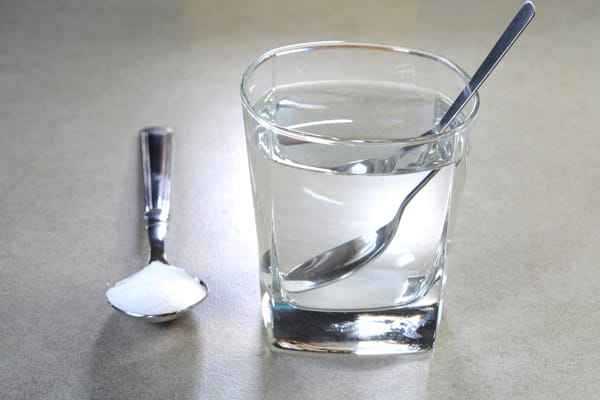
Oral health is often underestimated in its importance to our overall wellbeing. One simple yet effective practice that could drastically improve your dental hygiene is rinsing with salt water before bed. This age-old ritual may seem overly simple, but it carries a multitude of health benefits. In this blog, we’re going to delve into why this simple act can be a game-changer for your oral health.
The Science Behind Salt Water Rinse
A salt water rinse may not seem like an impressive solution, but it holds some powerful chemistry. Salt, or sodium chloride, has antibacterial properties that have been used for health purposes for centuries. These properties, when applied to dental care, can have a surprisingly beneficial effect.
Natural Disinfectant
The first benefit of rinsing with salt water before bed is its disinfecting ability. The salt solution acts as a natural disinfectant by cleaning the oral cavity of harmful bacteria. It’s a gentler alternative to commercial mouthwashes, which often contain alcohol or other harsh chemicals.
Fights Bad Breath
Bad breath, or halitosis, is typically caused by bacteria in the mouth breaking down leftover food particles, producing odor-causing sulfur compounds. Other contributors include dry mouth, tobacco use, certain foods, and some health conditions.
Rinsing with salt water before bed can prevent bad breath by acting as a natural disinfectant, killing bacteria and inhibiting their growth. It also helps dislodge food particles stuck in the mouth and maintains a healthy pH level, preventing overgrowth of bacteria that cause bad breath. However, it doesn’t replace regular brushing, flossing, and dental check-ups.
Reduces Inflammation and Pain
A salt water rinse can also act as a natural pain reliever. If you’re dealing with oral discomfort or inflammation, a lukewarm salt water rinse can provide some relief. The salt water solution helps to soothe the inflamed tissues, offering a level of comfort to your gums and teeth.
Inflammation is a natural response of the body’s immune system to injury or infection. However, when it comes to the gums and teeth, chronic inflammation can be harmful and detrimental to oral health. This is primarily because chronic inflammation is often associated with conditions such as gingivitis and periodontitis, which are serious gum diseases.
Inflamed gums are typically a sign that harmful bacteria are thriving in the mouth. These bacteria can cause gums to become red, swollen, and often painful. Over time, it can lead to the breakdown of the structures that support the teeth, including the gums, periodontal ligaments, and the jawbone.
Chronic inflammation can create pockets between the gums and teeth where more bacteria can accumulate, leading to increased inflammation and further damage. Left unchecked, this process can ultimately lead to tooth loss. The persistent presence of these harmful bacteria can also lead to tooth decay, causing cavities and damaging the enamel, the hard outer layer of the teeth.
Research has shown that inflammation in the mouth can have impacts beyond oral health, potentially contributing to systemic health issues like cardiovascular disease, diabetes, and respiratory diseases.
Accelerates Healing
The magic of rinsing with salt water before bed doesn’t stop there. Salt water has shown its potential in promoting the healing process of oral wounds. This is particularly beneficial for those recovering from oral surgeries or dealing with mouth ulcers.
Prevents Gum Diseases
One of the most significant benefits of a salt water rinse is its potential in preventing gum diseases. Conditions like gingivitis and periodontitis can be kept at bay by maintaining a clean oral environment. Incorporating a nightly salt water rinse into your dental hygiene routine can contribute to healthier gums.
How to Properly Rinse with Salt Water
Now that we know why it’s beneficial, how do we go about it? For an effective rinse, use half a teaspoon of salt in one cup of warm water. Swish the solution around your mouth for about 30 seconds, then spit it out. Doing this nightly can lead to the benefits we’ve discussed.
Precautions and Potential Side Effects
As with any health practice, it’s essential to consider the potential risks even if they’re unlikely. Overusing a salt water rinse can potentially lead to dry mouth or erode the tooth enamel over time. It’s crucial to maintain a balance and not substitute regular brushing and flossing with this. As always, seek professional dental advice if you experience persistent oral health issues.
The practice of rinsing with salt water before bed is a simple and cost-effective measure that can greatly enhance your oral health. While it’s not a substitute for regular dental check-ups and a good brushing and flossing routine, it can certainly complement your oral care regimen. Try incorporating it into your nightly routine, and remember to consult with your dentist for personalized advice.
Implementing this practice could be a step towards a healthier, fresher, and happier mouth. So, before hitting the hay tonight, give salt water rinsing a try!

Contact Walbridge Dental
Have you been eating food that’s likely to damage your teeth? We can help! The professionals at Walbridge Dental provide complete family dental care to families in the Millbury community. Contact us online to set up an appointment now or call us at 419-836-1033.
Connect on Social Media!
